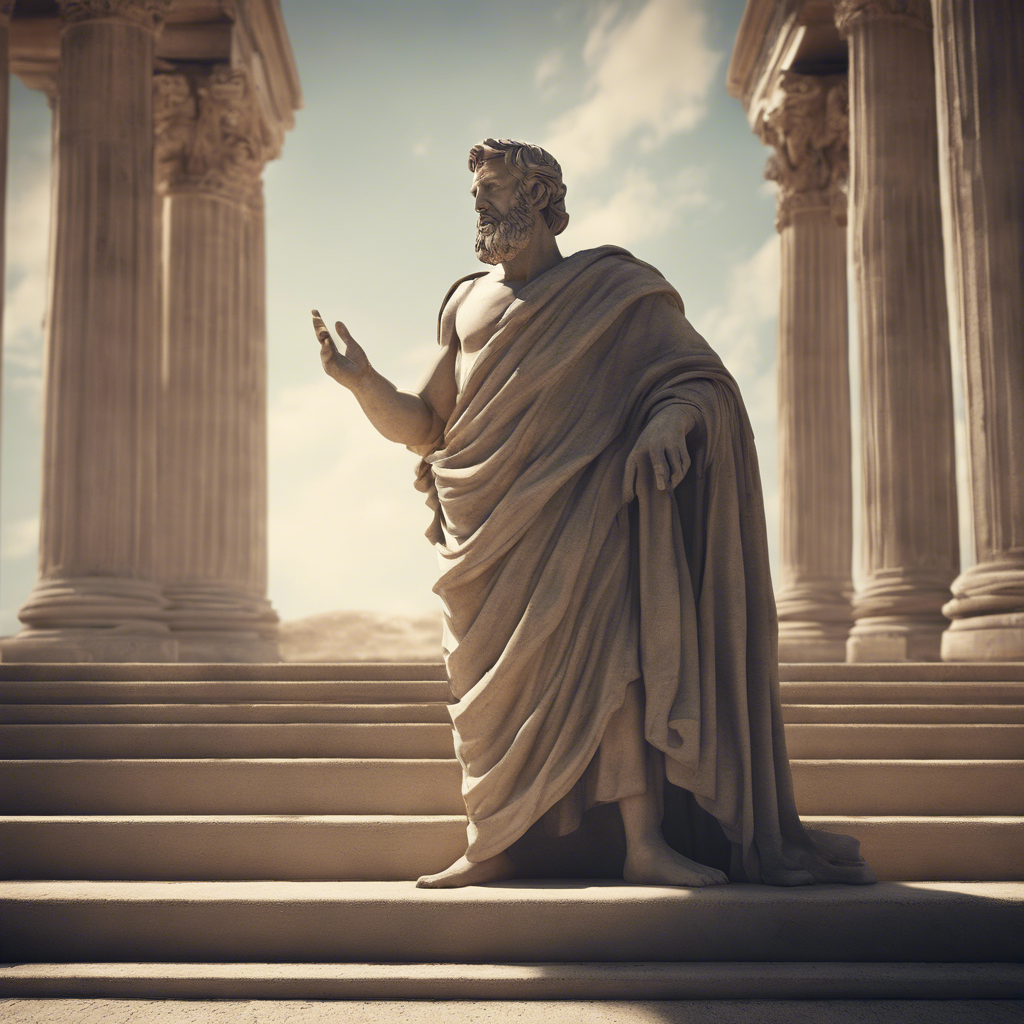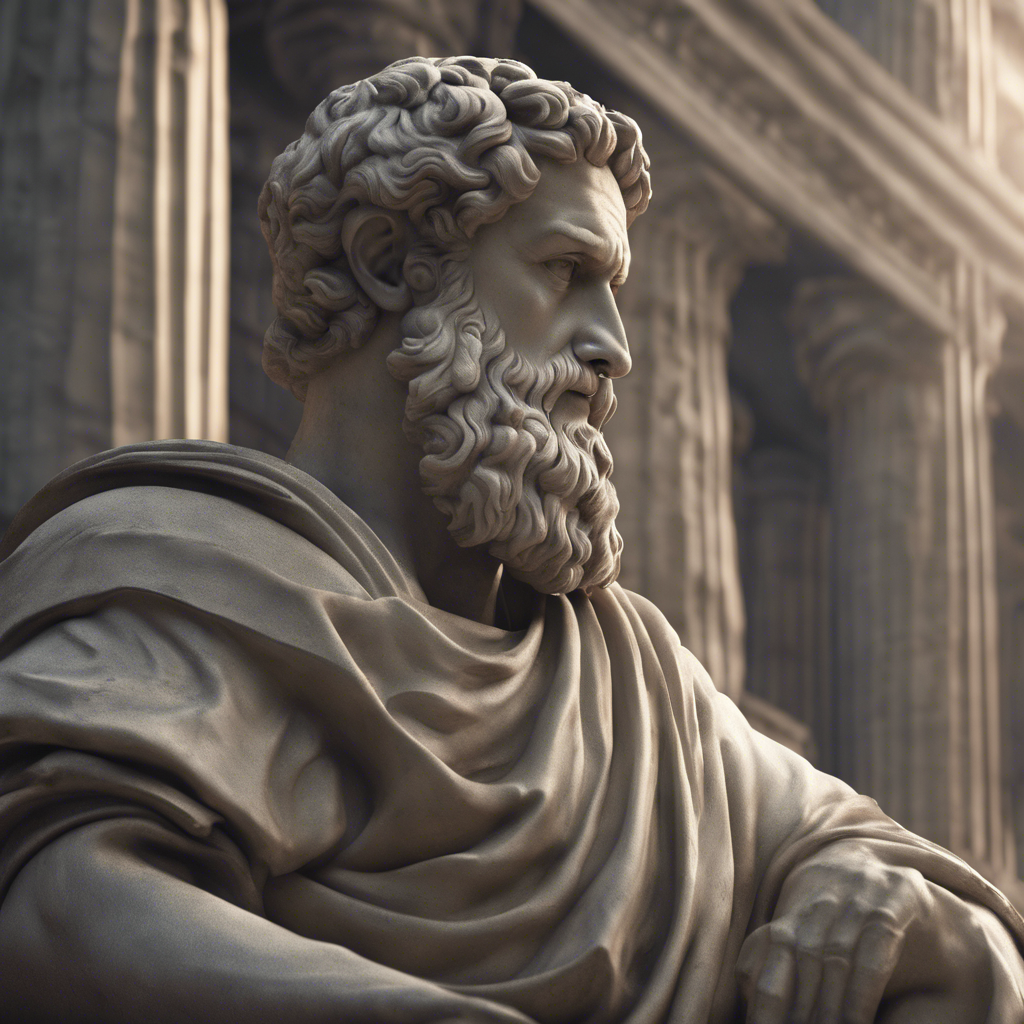Epictetus : The art of living
- thekaizenway2715
- Oct 20, 2024
- 7 min read
Contents
Marcus Aurelius was a Roman emperor, Seneca was a political figure and advisor to the emperor, and Zeno was a wealthy merchant. But Epictetus? He was born a slave.
How could a slave possibly fit into the ranks of the greatest Stoic philosophers? Marcus, Seneca, and Zeno were all wealthy and had immense resources. Epictetus, on the other hand, had just one: his mind.
This is the story of one of the greatest philosophers, Epictetus, and the art of living, how he conquered the monumental challenge that was his own mind.
"It's not what happens to you, but how you react to it that matters.” - Epictetus

Epictetus : The Art of living - Introduction
Epictetus, a Roman philosopher and teacher, left a profound impact on philosophy. Some of his notable works include the "Discourses" and the "Enchiridion" (Handbook). These works continue to inspire and guide readers with their timeless wisdom on stoicism. Well, at least that's the part everyone knows. At the time of his birth, Epictetus was not deemed fit to be a philosopher in society. In fact, he wasn't considered fit to be anything except a slave
"Wealth consists not in having great possessions, but in having few wants.” - Epictetus
This is what makes Stoicism interesting, Its wisdom is practiced by both the once most powerful man in the world and a slave. This shows that no matter which path you take, the philosophy of Stoicism could still help you.
Life of Epictetus
Nearly 2000 years ago (in the first century AD), Epictetus was born as a slave into a wealthy household in Hierapolis, Phrygia (present-day Pamukkale, Turkey). It is said that his life as a slave was full of suffering and hardships. Epictetus' leg was broken by his master, so during his years as a slave, he was also crippled. However, Epictetus discovered philosophy when his master gave him permission to pursue liberal studies. This is where he found Stoicism, through the teachings of Musonius Rufus, who became his mentor.
After the death of Emperor Nero, Epictetus, who had been a slave for a significant period of his life, gained his freedom. Epictetus taught philosophy in Rome for about 25 years. He established a school in Rome around 90 AD, where he lectured and imparted his teachings on Stoicism until Emperor Domitian exiled all philosophers from Rome. Epictetus fled to Nicopolis in Greece, where he founded a philosophy school and taught until his death in 135 AD.

Epictetus did not record any of his wisdom himself; instead, his works and teachings were recorded in journal notes by his student Arrian. Some of these include the 'Discourses' and the 'Enchiridion' (Handbook), which continue to serve as invaluable guides to Stoic philosophy and principles.
"No man is free who is not master of himself.” - Epictetus
This series of works contains immense wisdom. From his writings, we can understand how he molded his mindset to endure the hardships of slavery. He said, 'He is free who lives as he wills, who is in his own control, and who is in need of nothing.'
While everyone else was enslaved by their wealth, mind, emotions, and so on, Epictetus was the one who was truly free. It is rather ironic that a slave had more freedom than most people of his time.
Philosophy of Epictetus
From a mere slave to one of the greatest philosophers—this feat requires some serious mental power and discipline. Epictetus left us with one of the greatest concepts in Stoicism: the Dichotomy of Control—what's up to me and what's not. Epictetus says that remembering what is in your control is the first part of life.

Life as a slave was anything but easy. Yet, through the teachings and wisdom of Zeno, Epictetus found a way to remain calm and composed. He created a mindset structure that helped him endure slavery. His wisdom and teachings formed one of the founding pillars of the philosophy of Stoicism.
"Make the best use of what is in your power, and take the rest as it happens.” - Epictetus
He believed that philosophy was not merely an intellectual pursuit but a practical tool for improving the lives of people who embraced its teachings.
Lessons From Epictetus
Dichotomy of Control:
Focus on what's in our control, and nothing else matters. When we think about it, often the things that are outside our control are the things that bug us the most. So, focus on what's in our control and what's not. It's easier said than done; in practice, this concept is much harder to adopt. I say, in times of ease, anyone could think philosophically and be self-aware, but in times of adversity, that's when the real character comes out. Being the same self at that time is what makes the difference, and for Epictetus, it did.
"Freedom is the only worthy goal in life. It is won by disregarding things that lie beyond our control.” - Epictetus
The life of a slave was difficult, yet he faced adversity like no one else would. He did it by focusing on what was truly in his control. It is a difficult feat to achieve, but that's why Epictetus says it's the first and primary part of life—to split everything into what's in our control and what's not.

In our lives, most of the time we get frustrated and irritated by what's not in our control. In practice, it may look like this: Angry over traffic? It's not in our control. Frustrated by the weather? It's not in our control. Irritated by other people? How they act is not in our control.
See, by adopting this philosophy, we could solve at least half of our problems throughout life. Epictetus says what's in our control is usually the way we react to things. The most important part of an event is not the event itself but our judgment of it. Read more about it in the next section.
The Power of Perception:
Think of the last time you got angry, irritated, or frustrated. It's more likely that most of us kind of regret reacting that way. When we think about it, it's not the event that is the problem but rather our judgment of it. We made a poor judgment, and that's okay; sh#t happens. That is why Epictetus says that after realizing what's in our control and what's not, we have to work on controlling our reactions.
As a person who was consumed by anger years ago, I can safely say that being self-aware is the most important part of our power of perception.

Epictetus says to not view events as positive or negative but rather be on the neutral side of them. This greatly helps in our emotional stability. He says, "Death is nothing terrible, but the terror consists in our notion of death that it's terrible. When, therefore, we are hindered, disturbed, or grieved, let us never attribute it to others but to ourselves; that is, to our own views. It is the action of an uninstructed person to reproach others for his own misfortunes; of one entering upon instruction, to reproach himself; and of one perfectly instructed, to reproach neither others nor himself.”
"If you are pained by any external thing, it is not this thing that disturbs you, but your own judgment about it. And it is in your power to wipe out this judgment now. But if anything in your own disposition gives you pain, who hinders you from correcting your opinion?”
"We cannot choose our external circumstances, but we can always choose how we respond to them.” - Epictetus
Accept Fate with Grace:
Is it truly possible to love one's fate, even if it's full of adversity? Well, Epictetus says we can. He did this by adopting the Stoic concept of Amor Fati—love thy fate. It means to love your fate no matter the circumstances. The Stoics saw obstacles and adversities as opportunities to grow. As they say, "Whatever doesn't kill you makes you stronger."
"Seek not that the things which happen should happen as you wish; but wish the things which happen to be as they are, and you will have a tranquil flow of life.”

Conclusion
In conclusion, Epictetus serves as an inspiring testament to the power of the human mind and spirit. Despite being born a slave and facing countless hardships, he chose to focus on what was within his control, ultimately achieving inner freedom and leaving a lasting legacy with his teachings. Epictetus showed us what true freedom actually means. Born a slave, but the man died a legend.
"He who laughs at himself never runs out of things to laugh at.” - Epictetus
FAQ
1. Who was Epictetus?
Epictetus was a Roman philosopher born as a slave in Hierapolis, Phrygia. Despite his challenging circumstances, he became one of the greatest Stoic philosophers.
2. What are some of Epictetus's notable works?
Epictetus didn't write down his teachings himself; his student Arrian recorded them in works like the "Discourses" and the "Enchiridion" (Handbook).
3. What is the Dichotomy of Control?
The Dichotomy of Control is a concept introduced by Epictetus that teaches us to focus on what is within our control and to accept what is not.
4. How did Epictetus view events and external things?
Epictetus believed that our judgments about events, rather than the events themselves, are what cause us distress. He taught that we have the power to change our perceptions and reactions.
5. What does 'Amor Fati' mean?
'Amor Fati' is a Stoic concept meaning 'love your fate.' Epictetus embraced this idea, seeing obstacles and adversities as opportunities for growth.
6. How did Epictetus overcome his hardships as a slave?
Epictetus overcame his hardships by focusing on what he could control—his own mind and reactions—and adopting Stoic principles that helped him maintain inner freedom and peace.



Comments